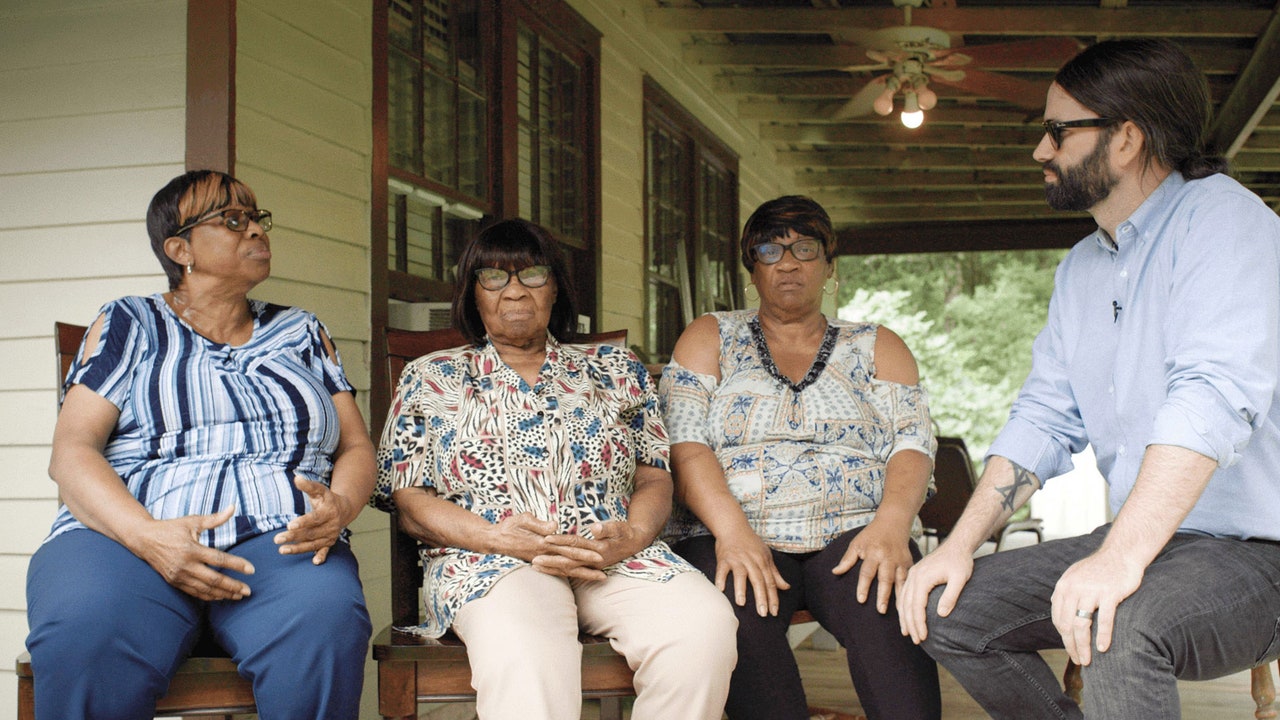It wasn’t long ago that the documentaries at the top of the box office each year were also the films on everyone’s lips. Think of Hoop Dreams or Roge
It wasn’t long ago that the documentaries at the top of the box office each year were also the films on everyone’s lips. Think of Hoop Dreams or Roger and Me or, more recently, Won’t You Be My Neighbor?: movies that attracted a diverse audience, garnered awards attention, and made a respectable amount of money.
The list of this year’s top-grossing docs is a very different story. Instead of the next Grey Gardens or Grizzly Man, 2024’s top 10 is a hodgepodge of faith-oriented films, a movie in praise of Donald Trump, and glorified trolls clearly intended to appeal to those on the starboard side of moderate. A few celebrity-driven projects and a compilation of cat videos round out the list. At the very top, where Anthony Bourdain and David Bowie once perched, you’ll find Am I Racist?, a bizarro-world Borat–meets–Bowling for Columbine from conservative media outlet the Daily Wire.
The enormous gap between what many of us think of as prestige-style documentaries and what actually charts at the box office these days is fairly modern, according to most industry experts I spoke with. Where they disagree is why that is. Some say studios don’t want to put more time-honored docs in theaters, preferring the lower-risk path of plopping them straight onto streaming. Others blame savvy targeted social media campaigns, the same kind used to spread misinformation and sow political strife. Still more argue that for too long, filmmakers have been out of touch with the interests of the American population, and that this year’s box office reflects that divide. They might all be right.
“The documentary marketplace is overflowing right now,” says film business analyst Jeff Bock. “You could call it the golden age of documentaries.” Jaie Laplante, artistic director of DOC NYC—the country’s largest documentary film festival—agrees: “Documentaries’ golden age continues, it just continues in a new phase.” For that, we can thank streaming platforms, which make nonfiction films easier than ever to distribute and market straight to audiences. “I can’t imagine trying to market all those theatrically,” Bock says of the increasing number of documentaries available to stream.
Films about widely known quantities are an exception to the rule. “Unless you’re tied to an event like a Taylor Swift, it’s going to be almost impossible to pull off” a successful nonfiction theatrical release, Bock says, referring to the singer’s 2023 Eras Tour film. (While not classified as a documentary, that movie was 2023’s 11th-highest-grossing film domestically.) “Think about where media is today: It really is dominated by IP. They know Jesus, they know God, they know the Blue Angels. They know cats. These are things that we’re familiar with and will spend time and money on.” Documentaries that play into that need by apparently celebrating patriotism—or dismissing cultural changes—have a built-in audience.
For studios and distributors, “whatever gets butts in seats is what really matters,” says Bock. One company that appears to have figured out that equation is Fathom Events (which, as of January, will be renamed “Fathom Entertainment”), a distributor co-owned by the country’s three biggest theater chains: Cinemark, Regal, and AMC. “This company was first started years ago on the concept that we would try to put butts in seats Monday through Thursday,” CEO Ray Nutt tells me from his Colorado office, which is decorated with framed posters of theatrical releases including The Chosen—a fictionalized account of the life of Jesus Christ, which Fathom brought to theaters to great success. “That has changed significantly. I’ll be honest with you, it’s probably easier to get inventory in movie theaters when the commercial product is down.”
Fathom has taken advantage of struggling theaters by slotting in films like Jesus Thirsts: The Miracle of the Eucharist, a movie in praise of the Catholic faith that boasts one of Mark Wahlberg’s brothers as a producer. Unless something happens in the next two weeks, it will close out the year as the third-most-popular nonfiction film at the box office, just behind Piece by Piece, Pharrell Williams’s LEGO-infused bio-documentary. (Vanity Fair reached out to representatives for Jesus Thirsts for comment, but did not receive a response as of publication time.)
Another Fathom release, The Ark and the Darkness, claims to prove that the Biblical account of an all-encompassing flood (the ark in the title is Noah’s, not Indiana Jones’s) is true. It’s being counted as the fifth-highest-grossing documentary of the year.
While Nutt’s theatrical partners clearly deserve credit for getting niche films in front of larger audiences, there are other ways to build audiences for religious films like these as well. The company actively courts religious groups outside regions where Fathom’s faith-focused films are playing. “We license that content to them, to the church, and then the churches actually show it,” Nutt says. “That is something that we feel really, really good about doing, to make sure that people in those smaller communities that don’t have a movie theater in a reasonable distance from their homes can see our content.”
The church screenings, he adds, are “not a giant revenue thing for us”—but this strategy clearly can goose a movie’s box office. For a genre where most films sell tickets in the thousands (if that), any group ticket sales can be pretty significant.
Proponents of faith-based films also employ social media ads encouraging email campaigns. Rebecca Fons, the director of programming for both Chicago’s Gene Siskel Film Center and the Iowa Theater in the diminutive Midwestern town of Winterset, has been on the business end of those campaigns. “You can imagine that I program really different films here in Chicago than I do in Iowa,” she says. At the latter venue, she’s been urged to show “Trump content—or, you know, Catholic content or Christian content.”

COMMENTS